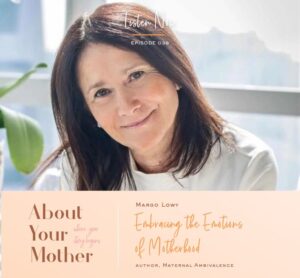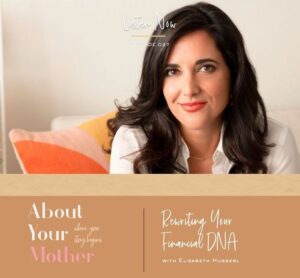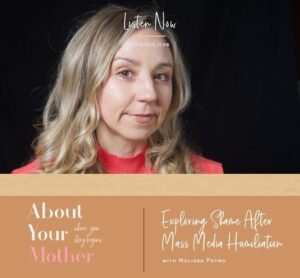Ann Fessler’s critically accompanied book, “The Girl Who Went Away,” gives voice to the millions of women forced to surrender their babies in the decades before Roe v Wade. As an artist and a teacher, listening to Ann tell her story feels like you are walking into a lecture hall about to learn something new, and you are.
Understanding Adoption
As an adoptee, adoption has always been central to Ann’s life. However, her understanding of adoption changed in 1989 when she had a seemingly casual greeting that changed her life.
“I was teaching at a college in Maryland and Maryland Institute College of Art, and I went to an opening for a graduate student I’d been working with. I was walking around the gallery, and a woman walked in. And she looked really familiar to me, but I couldn’t remember where I knew her from. A little bit later, I see her coming across the room directly towards me. And I’m thinking, ‘Oh, who is she?’ She walks up to me, and with no introduction, she said, ‘You could be my long-lost daughter; you look exactly like the combination of myself and the father of my child.’ And I actually started to have a kind of physical reaction to that.”
– Ann Fessler
Ann was one of those adoptees who had never given much thought to the possibility of finding her birth parents as she felt they didn’t want to know her. The chance meeting opened her mind to learning more about what both sides experienced during separation.
The Girls Who Went Away
Ann’s parents were very open about her adoption, but that didn’t address the societal issues that led to millions of women surrendering their babies. In the 60s, before Roe v Wade, many young women were being sent away in shame because being a single mother was taboo and unacceptable at the time. A single, unwed mother would harm their family’s reputation.
“The women I interviewed, many of them are my age. And I knew what happened if you became pregnant — you got out of town as fast as possible, because you would be absolutely ruined. If anyone knew, your reputation is ruined. You were told no man’s ever going to want you.”
– Ann Fessler
Young ladies would disappear from school one day and return in a year with some excuse for their absence.
Family Confessions: Real Adoption Stories
Ann leveraged her curiosity and artistic talent to reveal a side of infant adoption few people understood. After decades of silence, women told of having motherhood stolen from them through a nefarious infant adoption system and a society that supported it. These confessions brought light to family secrets held for decade.
An Adoptee Perspective: The Other Side of Adoption
Ann was exposed to a different perspective when talking to the woman in the gallery. As someone who had gone through life as an adoptee and was well-versed in women’s history, she felt she had uncovered a painful secret.
“I realized that I was completely wrong. And that I had never considered that losing a child through adoption was any different than losing a child in any other way, that it’s a loss. It’s an enormous loss. And people talk about losing a child as the worst thing that can ever happen to you. But they never talked about that in relation to a mother who surrenders her child for adoption.”
– Ann Fessler
To hear more from Ann Fessler and the story of The Girls Who Went Away, download and listen to this episode.
Bio
Ann Fessler
For more than 35 years, Ann Fessler’s work has focused on the stories of women and the impact that myths, stereotypes, and mass media images have on their lives and intimate relationships. Fessler turned to the subject of adoption in 1989 after being approached by a woman who thought Ann might be the daughter, she had surrendered for adoption forty years earlier. Though the woman was not her mother, Fessler—an adoptee—was profoundly moved by the experience. The conversation that ensued changed the focus of her work. Since that time, she has produced three films, numerous audio and video installations, and a non-fiction book on adoption.
Between 2002-05, Fessler conducted over 100 interviews with women who lost children to adoption during the 28 years that followed WWII, when a perfect storm of circumstances led to an unprecedented number of surrenders. Her short films on adoption have won top honors at festivals and have been screened internationally. Her book, The Girls Who Went Away (Penguin Press, 2006) was chosen as one of the top 5 non-fiction books of 2006 by the National Book Critics Circle, and was awarded the Ballard Book Prize, given annually to a female author who advances the dialogue about women’s rights. In 2011, her book was chosen by readers of Ms. magazine as one of the top 100 feminist books of all time.
In 2014, Fessler received the 2014 Adoptee Trailblazer Award.
The award was announced at the Eighth Biennial Adoption Conference at St. John’s University on May 31, 2014. The Adoptee Trailblazer award is to honor an adult adoptee whose work inspires and is foundational for professionals in adoption and foster care work. The award is unique in that it recognizes adult adoptees specifically for their pioneering work in a field in which they were “insiders” as adoptees, but through their hard work, innovation, professionalism, intellect, and dedication became leaders and often reformers of the practice of adoption.
Connect with Ann!
Website | The Girls Who Went Away A Girl Like Her



